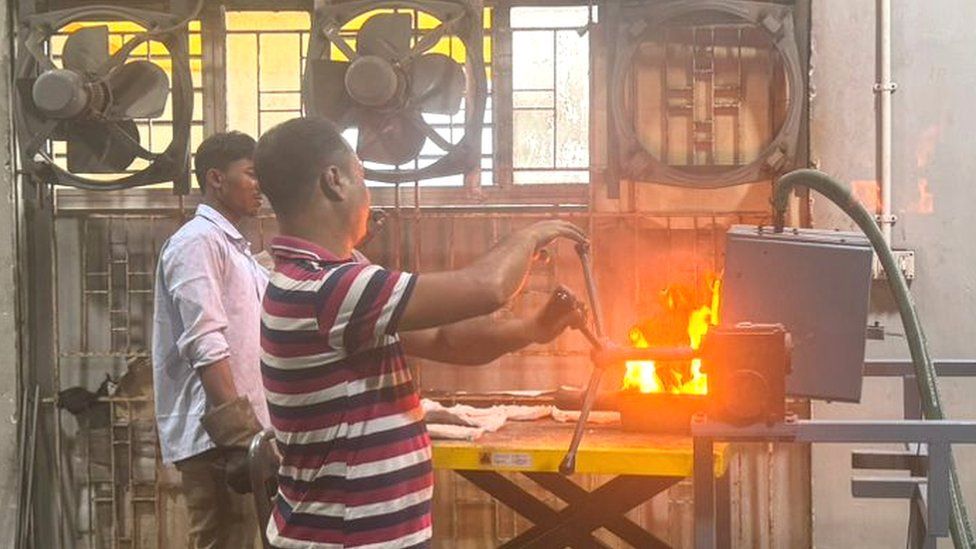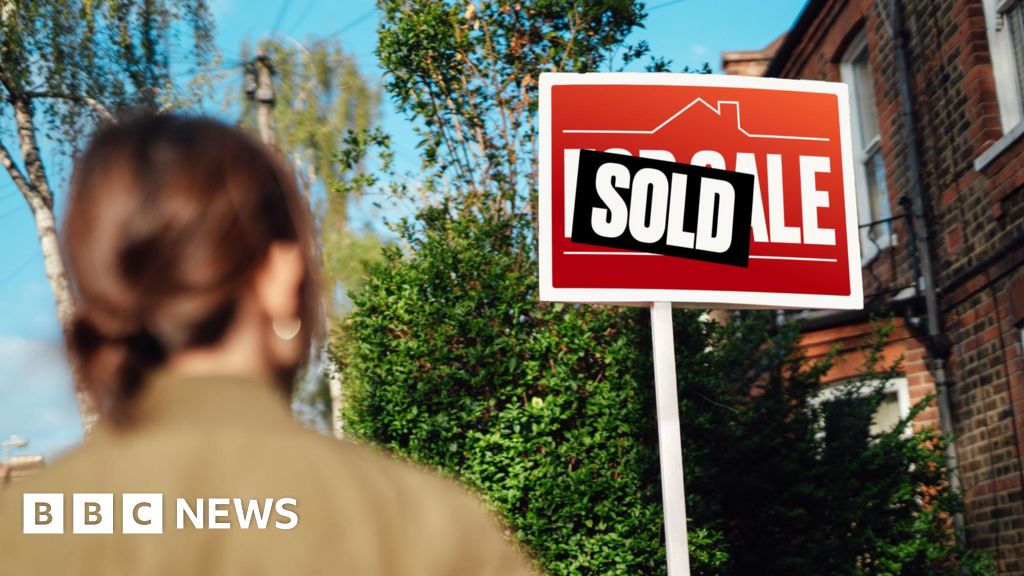ARTICLE AD BOX
 Image source, World Gold Council
Image source, World Gold Council
India has thousands of workshops which melt down gold
Refining gold has a long history in the family of Satish Pratap Salunke.
Following in the footsteps of his father and grandfather, he and his business collect scrap gold from jewellers, melt it down and sell it back to the jewellers in the form of gold bars.
He has two refineries, one in Kochi in the southern state of Kerala and the other in Tiruchirappalli in Tamil Nadu. Relatives have refineries elsewhere in the south of India.
"Every day my refiners on an average melt two to three kilograms of gold," he says.
Almost every town in India will have at least one small refinery similar to those run by Mr Salunke. It is known as the "unorganised" refining sector, which distinguishes it from big refiners who make gold bars and coins from imported, unrefined gold.
It is estimated that, in total, Indian households hold a massive 25,000 tonnes of gold, and some of that is always available for sale, particularly when the price of gold is high or the economy is bad and people want to raise some cash.
Jewellers may process returned gold themselves but will often use small refiners who will make the gold back into bars.
Image source, Satish Salunke
Image caption,Satish Salunke says jewellers like to work with small refiners as they work fast
Mr Salunke says local jewellers like to deal with small refiners like his, because they work quickly and are happy to accept cash.
"Most jewellers prefer buying gold from us, as we are based in every city with small units. A jeweller can take back his refined gold in a few hours, not like big refiners who will take days to refine the recycled gold."
According to the World Gold Council, of the 900 tonnes of gold refined in India in 2023, 117 came from recycled sources.
But that recycling market is being eyed up by India's big industrial gold refiners.
They have expanded in recent years, spurred on by favourable import duties on their main source of gold - imported, unrefined gold known as gold doré.
Between 2013 and 2021, India's large-scale refiners increased their capacity from 300 to 1,800 tonnes of gold a year.
But it is difficult for them to import enough unrefined gold to keep their refineries running. In fact, less than 50% of their refining capacity is used, according to Harshad Ajmera, secretary of the Association of Gold Refiners and Mints.
So big refiners have been opening scrap collection centres in big cities, hoping to scoop up unwanted gold and turn it into high-quality bars.
"At present most of the recycling of gold is done by the unorganised sector [small refiners] - that has to change," says Mr Ajmera.
He wants India to become a global hub for gold refining, which would mean importing more unrefined gold and for the big firms to take over more of the gold recycling.
"Switzerland is the world's largest gold refining centre and transit hub. We want India also to be in the same position," says Mr Ajmera.
CGR Metalloys is one of India's leading gold refiners, refining about 150 tonnes of gold a year.
Like the other big players, it has the latest equipment for gold smelting and refining, which it says is better for the environment and can guarantee the purity of its gold to extremely high levels.
"The refined bullion is analysed to the highest levels of accuracy, on various methods of gold assaying," says James Jose, managing director at CGR.
It has opened three gold recycling centres in the state of Kerala.
"Indian refineries have a huge capacity... we have huge overheads. So setting up collection centres will increase the flow of scrap gold. This will help increase my output by 30% to 40%," says Mr Jose.
In recent years, the government has become more involved in the refining industry. In 2020 the Bureau of Indian Standards (BIS) introduced a range of standards for gold bars including purity, weight, markings and dimensions.
BIS-approved refiners can sell their bars to the commodity markets.
"The industry is gradually shifting towards greater organisation and efficiency, led by established refineries licensed by the Bureau of Indian Standards, which is setting trusted benchmarks for refined gold products, which will make India a global hub," says Somasundaram PR, the chief executive of the World Gold Council India.
Some figures suggest that smaller refiners are losing ground. According to consultancy Metals Focus, in 2015 between 70 and 75% of the recycling industry was unorganised; by 2021 this had declined to between 60 and 65%.
Image source, World Gold Council
Image caption,Small refiners are facing more competition from big players
The moves made by big recycling firms do not concern Mr Salunke much - he says he knows his customers.
"Local jewellers are not willing to pay a recycling cost which is too much beyond what we charge," he says.
And, like other smaller refiners, Mr Salunke has also been investing in modern refining technology.
They are moving away from using nitric acid to purify gold, instead switching to Aqua Regia, which is less polluting.
"The gold recycled by us is as pure as gold recycled by an organised refinery," says Mr Salunke. "Now we have a testing facility to check the purity, so it would be wrong to say we cannot refine gold into its purest form."

 9 months ago
1209
9 months ago
1209








 English (US) ·
English (US) ·